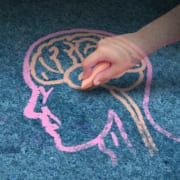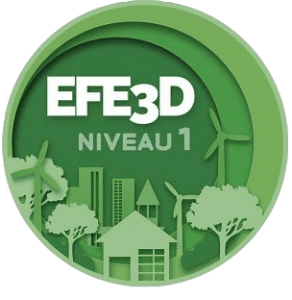Will Technology Ruin Your Child’s Development?
Whether it’s screen time or surfing the web, the majority of parents today have questioned the effects of technology on their children. Many have been left feeling rather confused with the immense amount of data on both sides of the debate. Is the internet going to melt the brains of our kiddos by destroying their ability to focus? Or is it going to open up endless possibilities and prepare them for an ultra-successful future?
Since technology led by the internet age is still, in essence, in its own childhood phase, we have limited resources for determining the full effect on developing minds. We don’t have the ability to examine historical patterns nor do we know how fast things will continue to expand. Nevertheless, there is plenty of data out there to help parents make a fully-educated decision.
The fact is, technology is empirically unavoidable today. There are technological devices and influences in virtually every aspect of our lives, and our children are no exception. Technology influences extend much further than video games and cell phones anymore. In fact, many classrooms are well-equipped with laptops, tablets, whiteboards and other devices to supplement their learning experience.
So how do we determine if these devices are helping – or hurting – the development of our children? According to the US National Library of Medicine’s National Institution of Health (NIH), technology has offered us a wide array of both productive and counter-productive outcomes in terms of the effects on developing minds.
In layman’s terms? Technology is both good and bad for our kids and basically, it’s up to us to weed them out. Before you get discouraged, there are methods that will help you sift through the digital drudge, as well as research to back up which methods are helpful and which ones are – well – not so much.
Technology Brain Food
As the NIH explains, if you think of technology’s effects on your child’s development in terms of “nutrition”, it can help you to gain a better perspective on how to sort it out. We know our children need well-balanced daily meals in order to grow physically healthy and strong, right? You wouldn’t feed your kiddos junk food and sweets every day and expect them to be fit as a fiddle. By the same token, technology is full of “nutritious” and “junk food” influences that will affect your child’s cognitive development.
The Junk Food
“Technology conditions the brain to pay attention to information very differently than reading,” says Dr. Jim Taylor, psychologist and professor at the University of San Francisco. According to his article in Psychology Today, the key to weeding out the “junk food” technology lies in monitoring methods that do not require a deep focus. What does this mean? In comparison with reading, surfing the internet for research is basically giving developing minds too much information too fast. In other words, it keeps kids from focusing on one specific concept. Doing so causes an undeveloped sense of understanding children could otherwise grasp from concentrating on a book.
Anything requiring little to no thought to complete (internet surfing, non-educational video games and television programs, etc.) will have a negative impact on the way brain connections are made. In fact, according to Taylor, influences such as the internet will adversely affect the way our children learn. These mediums bypass the need to focus and leave children “only able to focus fleetingly.”
The Vitamins and Minerals
On the flip side, there are many ways in which technology mediums have a profoundly positive impact on developing minds. These ways, which we’ll call the “vitamins and minerals” of technology, have the ability to improve overall development.
Perhaps the most important aspect to consider is to keep in mind that their futures will be filled with technology. This generation is one that will be engulfed in technology in pretty much every aspect of life, so including it from the beginning is giving them the tools they’ll need for a future filled with technological advancements. Think of digital learning tools as preparing your kids for their digital-filled futures.
According to the NIH, content is the most important thing to consider when filtering the vitamins from the junk food. Content, more than the type of device, is the key to finding what your children will benefit from the most. Ensuring whatever outlet they use (tablets, laptops, mobile phones, and yes, even video games), is used wisely, is the key to keeping their cognitive development healthy. Using nourishing content such as educational games, read-along programs, and digital media like interactive whiteboards to promote a learning experience is the difference between a nutritional digital experience and a junk food one.



























